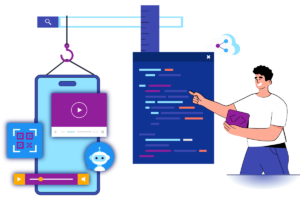The Rising Legal Backlash Against Aggressive Debt Collection Practices
Understanding the Growing Public and Legal Pushback
In recent years, there has been a notable surge in legal actions and public scrutiny aimed at debt collectors who deploy intimidation and unlawful methods. As inflation and economic uncertainty fuel household debt across the United States, debt buyers and third-party collection agencies are increasingly resorting to tactics that teeter on the edge of illegality or, in many cases, clearly violate consumer protection laws. This trend has sparked a wave of lawsuits, regulatory actions, and consumer advocacy that is reshaping the landscape of debt collection.
The Economic Climate Fueling the Problem
Persistent economic strain has made it more difficult for millions of Americans to meet their financial obligations. Credit card balances are climbing, auto loan delinquencies are increasing, and medical debts remain a burden for a significant portion of the population. Collection agencies are under immense pressure to recover these debts quickly. As a result, many are crossing ethical and legal lines to meet aggressive internal targets. This climate has led to a renewed spotlight on the issue of Collection Agency harassment.
Technology and Automation in Harassment
The increased use of technology by debt collectors has both streamlined operations and escalated abusive practices. Predictive dialers, automated voice messages, and artificial intelligence tools are now used to contact debtors with relentless frequency. Many consumers report receiving dozens of calls in a single day, even after issuing formal cease-and-desist letters. In some cases, these tools ignore time-zone restrictions and contact consumers outside permitted hours, in violation of federal guidelines. These digital tools, while legal in theory, are often deployed in ways that strip individuals of peace and privacy.
Consumer Rights Are Frequently Ignored
Despite clear protections under the Fair Debt Collection Practices Act (FDCPA), many consumers are unaware of their rights, or are intimidated into silence. The FDCPA prohibits practices such as threatening arrest, using profane language, or misrepresenting the amount owed. However, countless violations go unreported every year. Agencies often count on a lack of legal literacy and the emotional vulnerability of their targets. This has led to growing concern among legal experts and consumer advocates, who are pushing for broader public education and stricter enforcement.
Social Media and Public Shaming Tactics
A disturbing trend among some rogue collectors is the use of social media to shame debtors. While it’s illegal to publicly disclose a person’s debts, unscrupulous agencies find ways to exploit loopholes—messaging friends or family under the guise of “locating” the debtor or posting ambiguous threats that imply financial misconduct. These actions are psychologically damaging and potentially devastating to the personal and professional lives of those targeted. Courts are increasingly viewing such practices as harassment, opening new legal avenues for victims.
Judicial Responses Are Intensifying
Courts are responding more aggressively to allegations of harassment. In recent years, judges have awarded substantial damages to consumers in civil suits involving unlawful collection tactics. These judgments are not only punitive but also serve to establish legal precedents that shape how future cases are interpreted. Some state attorneys general are also stepping in, launching investigations and issuing cease-and-desist orders to agencies that repeatedly breach legal boundaries. These high-profile actions are setting a new standard for accountability.
Mental Health Toll and Social Implications
Beyond legal consequences, the psychological impact of collection agency misconduct is drawing increasing concern from healthcare professionals. The constant fear, anxiety, and humiliation that stem from aggressive collection practices can lead to severe stress, insomnia, depression, and even suicidal ideation. For families already facing financial strain, these tactics can push them further into crisis. A growing number of mental health professionals are speaking out, calling for a more humane approach to debt recovery.
Employers and Landlords Becoming Unwitting Participants
Another emerging issue is the growing number of collection agencies contacting employers or landlords as a way to coerce repayment. While this is often disguised as a routine verification process, it has the effect of publicly disclosing private debt matters. Employment opportunities and housing stability can be jeopardized, creating a cycle of hardship that is difficult to escape. Legal experts warn that these tactics may violate privacy laws and could lead to significant penalties for the collectors involved.
Legislative Shifts and Advocacy Momentum
In response to rising public outcry, several states are proposing new legislation to tighten controls on debt collection activities. These include stricter licensing requirements, mandatory disclosures, and enhanced penalties for violations. Consumer advocacy organizations are lobbying heavily for these reforms, pointing to case studies and data showing the disproportionate impact of harassment on low-income and minority communities. These efforts are beginning to influence national policy discussions and may result in landmark regulatory changes.
The Business Risk for Companies Using Aggressive Collectors
Companies that outsource collections to third-party agencies face significant reputational and legal risks if those partners engage in abusive behavior. Lawsuits and complaints do not always stop at the collection agency—they can also implicate the original creditor, especially if there’s evidence of willful ignorance. As a result, many businesses are reassessing their partnerships and investing in more ethical, compliant recovery strategies. This trend reflects a growing recognition that short-term gains from aggressive tactics are outweighed by long-term liability.
The Path Forward: Ethics and Transparency in Collections
The evolving conversation around debt collection is no longer just about legal compliance—it’s about restoring integrity to a deeply mistrusted industry. Leading voices in finance and consumer protection are calling for a new framework based on ethics, transparency, and fairness. Debt recovery, when done right, does not require harassment. It requires empathy, communication, and a commitment to lawful practices. The companies that embrace this model will not only avoid litigation but also foster stronger relationships with their clients and communities.
Conclusion
The legal and societal tide is turning against the old paradigm of aggressive, fear-driven debt collection. In its place is a growing demand for accountability, justice, and respect for human dignity. As lawsuits mount, new laws take shape, and consumers become more empowered, the message is clear: harassment will no longer be tolerated as a cost of doing business. Change is not only inevitable—it is already underway.













